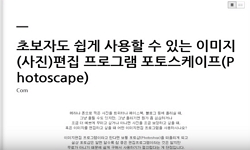The object of this study is to recognize how images of Korea have been changing in American society. Hollywood movies were chosen especially as the source of this study. Recently, the recognition of the value of movies for historians has been increasi...
http://chineseinput.net/에서 pinyin(병음)방식으로 중국어를 변환할 수 있습니다.
변환된 중국어를 복사하여 사용하시면 됩니다.
- 中文 을 입력하시려면 zhongwen을 입력하시고 space를누르시면됩니다.
- 北京 을 입력하시려면 beijing을 입력하시고 space를 누르시면 됩니다.
https://www.riss.kr/link?id=A40100531
- 저자
- 발행기관
- 학술지명
- 권호사항
-
발행연도
2003
-
작성언어
-
-
주제어
할리우드영화 ; Hollywood movies ; 한미관계 ; relations between Korea and America ; 이미지 ; images ; 왜곡 ; distortion ; 이민자 ; immigrants
-
KDC
900
-
등재정보
KCI등재
-
자료형태
학술저널
- 발행기관 URL
-
수록면
241-268(28쪽)
- 제공처
- 소장기관
-
0
상세조회 -
0
다운로드
부가정보
다국어 초록 (Multilingual Abstract)
The object of this study is to recognize how images of Korea have been changing in American society. Hollywood movies were chosen especially as the source of this study. Recently, the recognition of the value of movies for historians has been increasing. Korea was not a well-known country in Western society until the Korean War began. Many aspects of the description of Korea were therefore distorted. After the war was underway, Korea started to be objectively recognized. American newspapers broadcasted about Korea, many books about Korea were published, and Hollywood movies containing depictions of Korean society and Korean people began to be produced. The first reason that Korea was not introduced adequately in Western countries is that, because most Hollywood movie makers were acquainted only with Chinese and Japanese immigrants to America, Koreans in Hollywood movies were written as if they were Chinese or Japanese and the real Korean substance was distorted. Depictions of the Korean War often appeared not only in Hollywood movies, but also in many documentaries that reflected poorly on the Korean image. In the 1960’s, after America joined the Vietnam War, distorted images of the Korean War were mixed with images of the Vietnam War. The movie and television series M*A*S*H confused American audiences because, although both are ostensibly about the Korean War, they were based on attitudes regarding the Vietnam War. In the 1970’s, as large numbers of Korean people emigrated to America because of economic reasons, Hollywood movies started to show the Korean emigrants. Many Koreans managed grocery and liquor stores in depressed urban areas, and had many difficulties with American blacks and Hispanics. These situations were reflected in Hollywood movies, in which Korean emigrants were stereotyped as people who were not able to speak English well, unobliging, and money-grubbing. In 1983, the TV series M*A*S*H completed its run, while in 1988 the summer Olympic games were held in Seoul. Korea got a chance to escape from biased views. After Korea held the Olympic games successfully, the American viewpoint towards Korea became better. In 1991, with the USSR ruined and the Cold War over, the fact that Korea remained the only divided country in the world stood out. Many people thought that the Korean peninsula was in a fatal crisis and North Korea might have nuclear technology. Hollywood movies showed that North Korea could be a very hostile country. In the 1990’s, a number of Korean companies received strong results in the international markets; as a result, Korea established a better image alongside the images of Korean companies and goods. However, after the terrible terrorism in New York City in 2001, some countries including North Korea were pointed out as an ‘Axis of Evil’ by America, and many American people began to see the Korean peninsula as the crisis point again. Korean people continue to be depicted in Hollywood movies that still purvey misleading information about Korea to the world. Acknowledgement of this trend will result in a better and truer representation of Korea and the Korean people.
동일학술지(권/호) 다른 논문
-
- 한국미국사학회
- 박은진 ( Park Eun Jin )
- 2003
- KCI등재
-
- 한국미국사학회
- 손세호 ( Son Se Ho )
- 2003
- KCI등재
-
도로시아 린드 딕스(Dorothea Lynde Dix)의 정신병원 개혁운동
- 한국미국사학회
- 이현주 ( Lee Hyeonju )
- 2003
- KCI등재
-
남부연합군의 패인론: 로버트 리의 지휘력과 군사전략을 중심으로
- 한국미국사학회
- 이주천 ( Lee Ju Cheon )
- 2003
- KCI등재





 KISS
KISS







